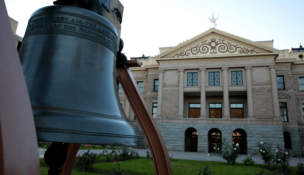House committee passes bill to purge early voting list
Ben Giles//March 27, 2019//[read_meter]
House Republicans advanced a measure to purge as many as 200,000 voters from Arizona’s early ballot mailing list despite concerns from county recorders, who aren’t certain that all counties can...
No tags for this post.















